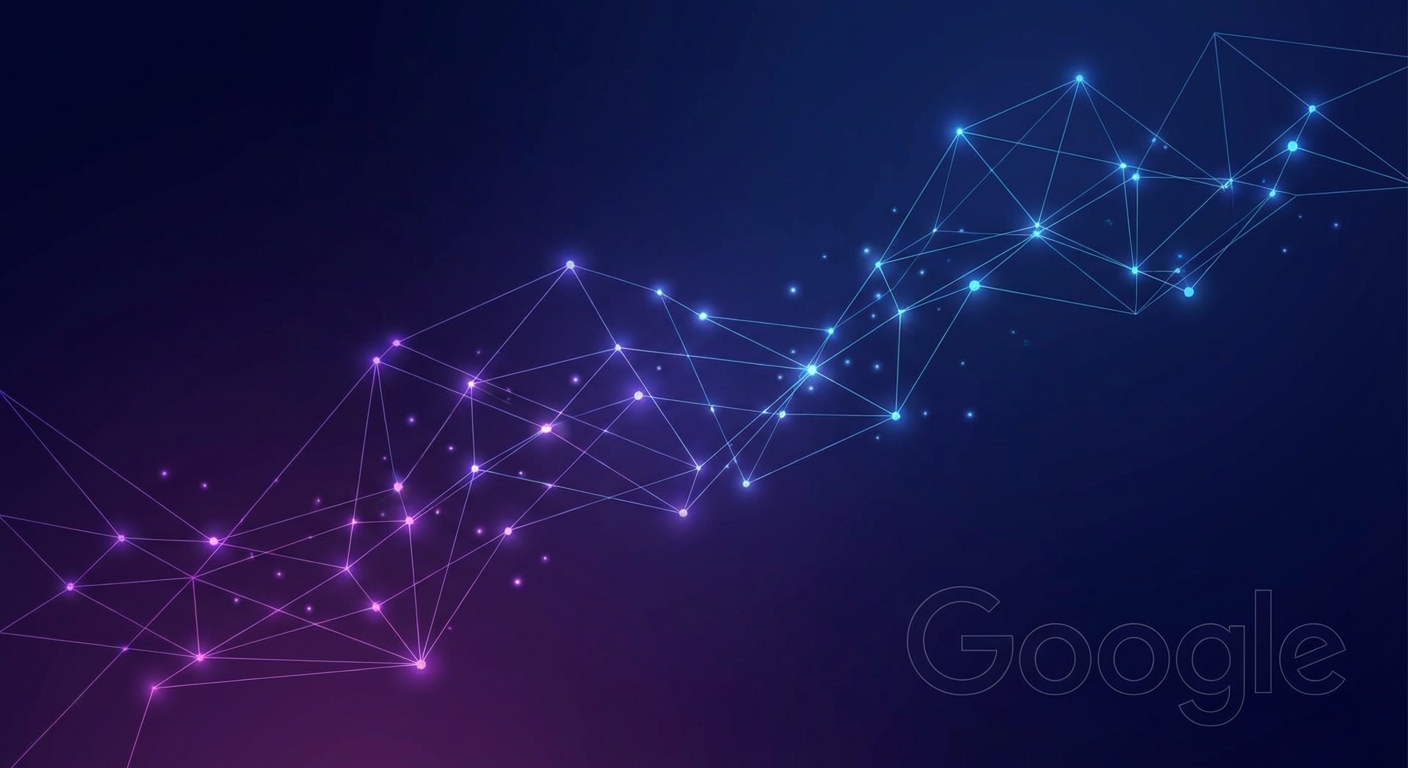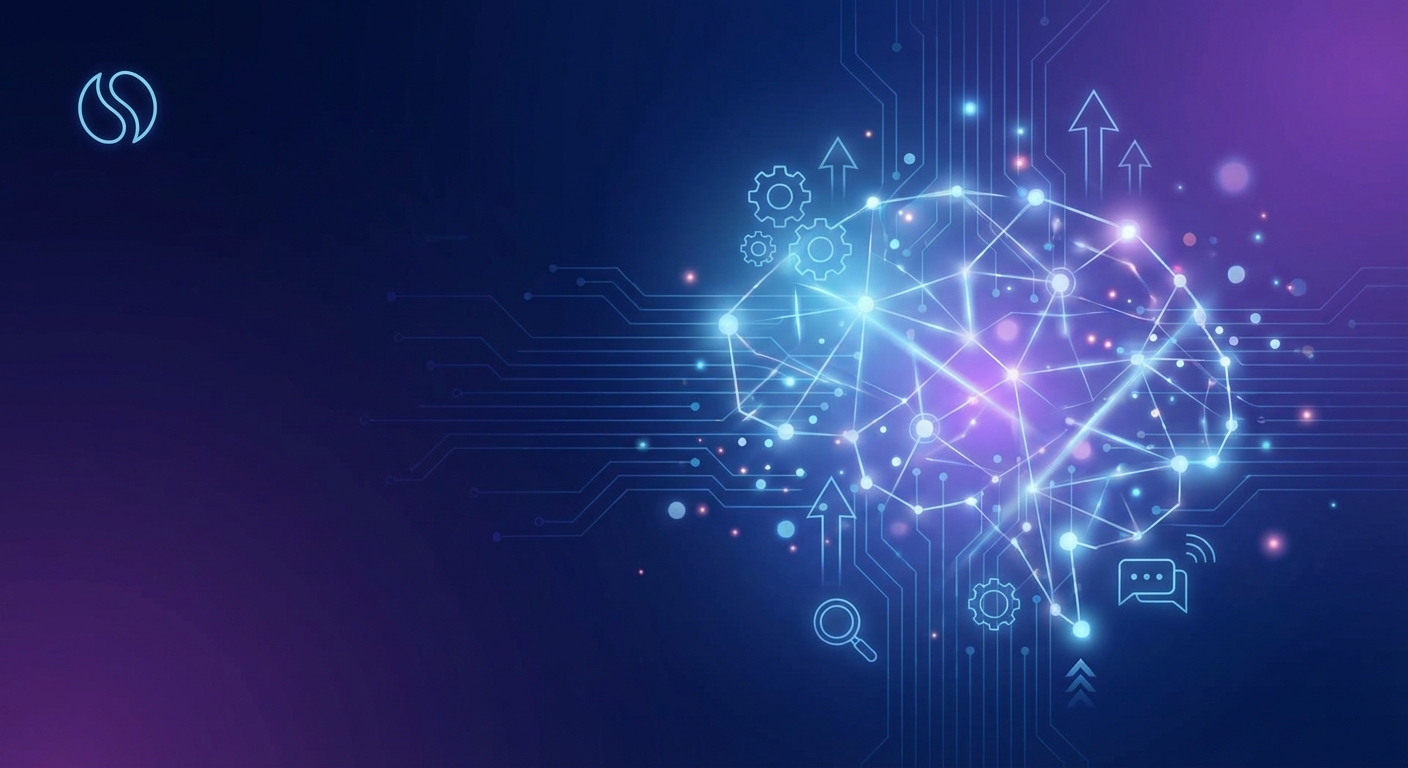AI Chatbots vs Google Search: The Future of Online Advertising
Shift Towards AI Chatbots
As millions of users increasingly turn to AI chatbots like ChatGPT, Gemini, and Claude for answers, brands are rethinking their digital marketing strategies. Traditional success online was largely determined by how well a brand ranked on Google. However, AI chatbots provide direct answers without prompting users to visit a website. This has rendered the traditional "top spot" on a search results page less important compared to being included in an AI's response.
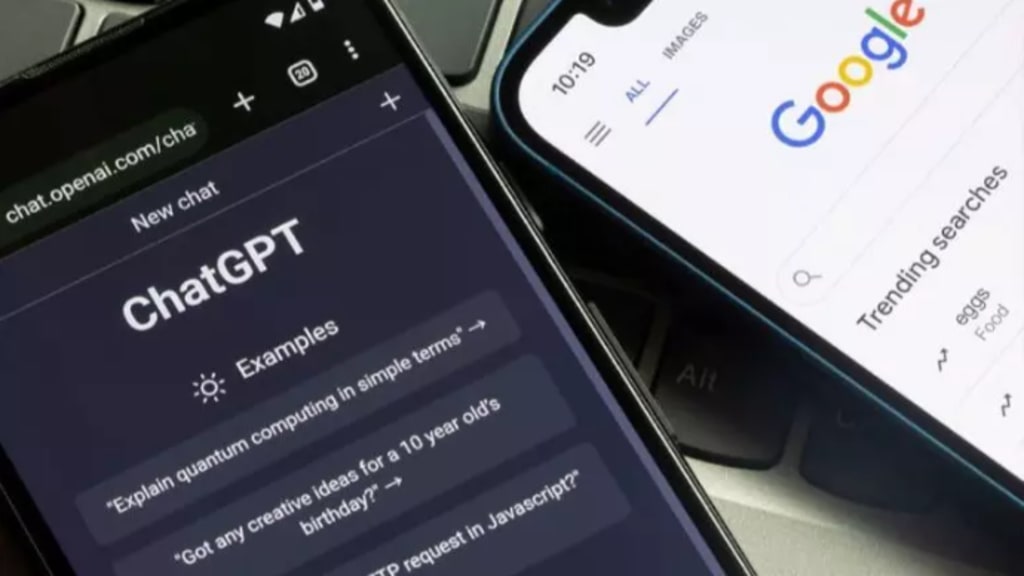
Image courtesy of Potent
Major brands are focusing on "AI Optimization" tactics to ensure that AI systems reference their brands, products, and services when answering questions. New advertising models are emerging, with some AI platforms experimenting with sponsored responses that integrate brand messages into chatbot answers.
Companies like Meta and Google are rolling out new AI-driven advertising services that allow brands to place their products within AI-generated content.
Consumer Behavior and AI Search Tools
Studies indicate that users referred by AI search tools are often more engaged. They tend to spend more time on sites, view more pages, and are less likely to leave quickly, suggesting that AI tools may better match users with relevant information. Brands must diversify their digital strategies to stay competitive across multiple AI search environments.
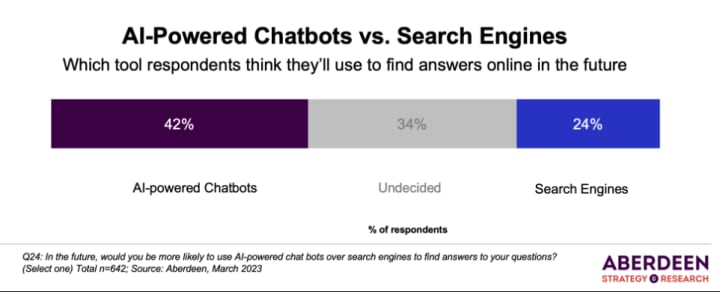
Image courtesy of Potent
The future remains uncertain, with analysts predicting that AI’s dominance in search could lead to a more fragmented internet. Some suggest that AI chat and traditional search will eventually combine, resulting in a hybrid experience.
Google and the AI Landscape
Facing the shift towards AI, Google launched its Search Generative Experience (SGE) in 2023-2024, which augments search results with AI summaries. Google’s CEO noted increases in user engagement and satisfaction among those using AI Overviews. The company is investing heavily in AI to enhance its search capabilities, including developing its own models.
Microsoft has partnered with OpenAI to integrate AI chat features into Bing, leading to a surge in daily active users. These shifts indicate that massive investments are flowing into AI-driven search, signaling industry consensus that LLMs are the future interface for information retrieval.
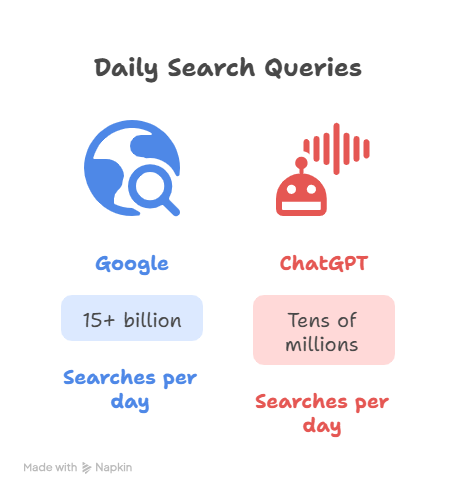
Image courtesy of TTMS
Projections for AI Search Dominance
Forecasts suggest that by 2025, LLM usage will still be less than 5% of global search queries, but the growth trajectory indicates that late 2020s could see a critical inflection point. Key data points include:
By 2025, over half of consumers will have tried LLM search with significant daily use.
By 2026, traditional search engine volume may drop as users turn to generative AI assistants.
By 2028, organic search traffic could drop by 50% or more, as consumers fully embrace AI search.
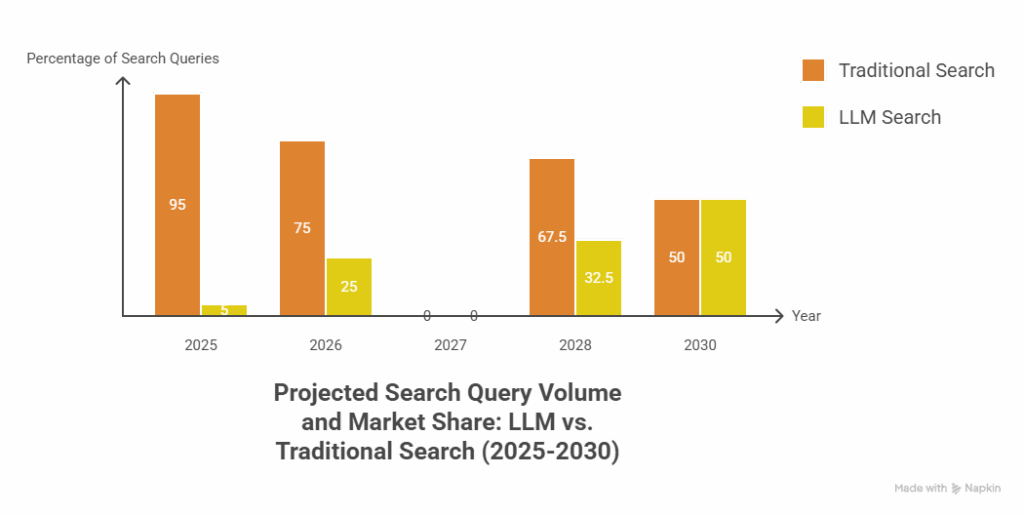
Image courtesy of TTMS
By 2030, LLM-powered search is projected to eclipse traditional search engines in global usage. Current data suggests a potential crossover in how users search for information.
Conclusion
The landscape of search advertising is rapidly evolving with the rise of AI chat platforms. Brands need to adapt to this changing environment by focusing on AI optimization and embracing new advertising models to remain competitive. The implications for digital marketing strategies are profound as users increasingly turn to AI for their information needs.



